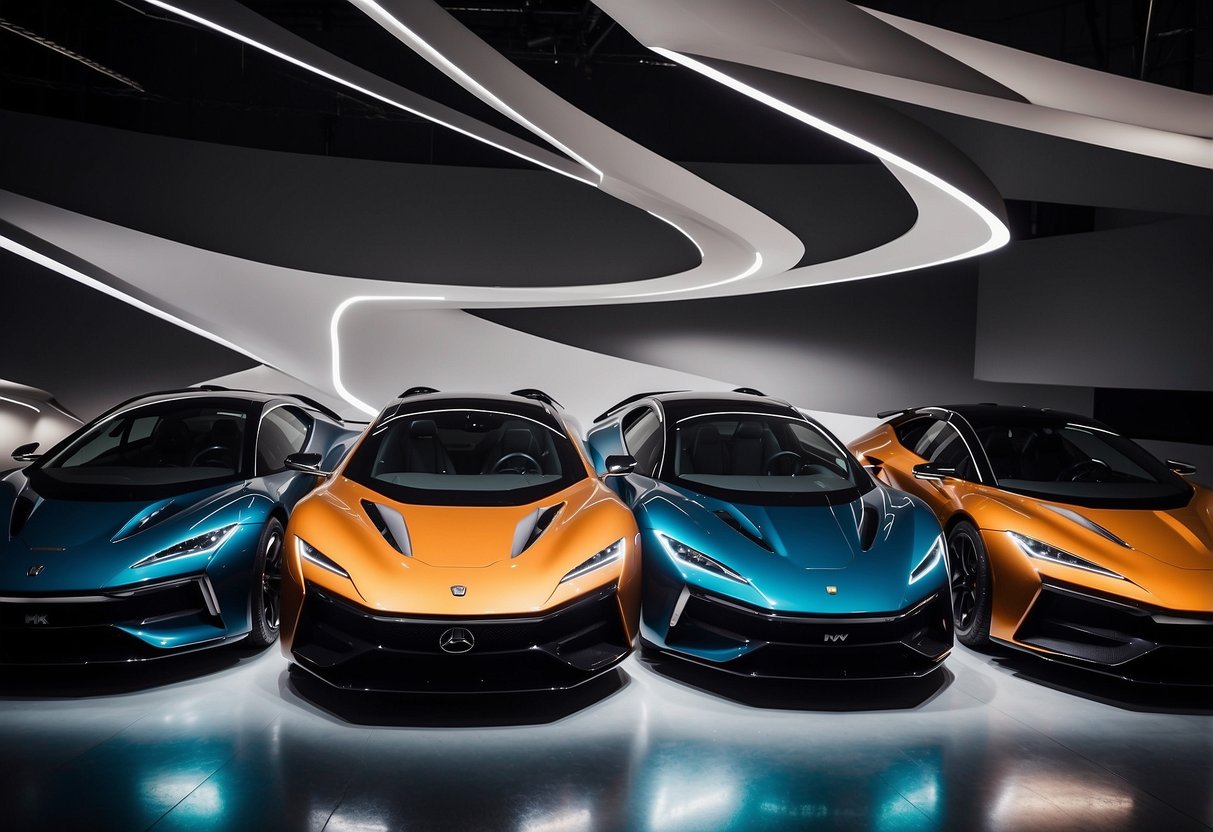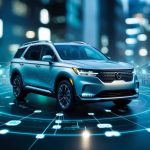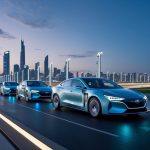
Innovative Safety Features

Concept cars this year showcase groundbreaking safety advancements designed to prevent accidents and protect occupants more effectively than ever before.
Active Safety Systems
Active safety systems are becoming increasingly advanced, incorporating technologies like autonomous emergency braking (AEB). These systems use sensors and cameras to monitor the road ahead, identifying potential hazards. If a collision seems imminent, the car can automatically apply the brakes to avoid or mitigate the impact.
Lane-keeping assist is another key feature, with the ability to gently steer the vehicle back into its lane if it starts to drift. Adaptive cruise control maintains a safe distance from the vehicle in front by adjusting speed automatically, reducing driver fatigue on long journeys.
Passive Safety Enhancements
Passive safety focuses on features that protect occupants during a crash. Modern concept cars may use new materials like carbon fiber and advanced high-strength steel for improved crashworthiness. These materials absorb impact forces better, safeguarding passengers.
Innovations in airbag technology include adaptive airbags that adjust deployment force based on the severity of the impact and the position of occupants. Crumple zones are also being redesigned to absorb more energy during a collision, further reducing the risk of injury.
Connectivity and Integration
Connectivity and Integration in concept cars are pushing the boundaries of how vehicles communicate with their environment and integrate with personal devices. These advancements aim to enhance safety, efficiency, and user experience. Key areas include Vehicle-to-Everything (V2X) communication and synchronization with smart devices.
V2X Communication
V2X, or Vehicle-to-Everything communication, represents a critical leap in automotive technology. This enables cars to interact not only with each other but also with infrastructure, pedestrians, and networks. It enhances safety by providing real-time alerts about traffic conditions, pedestrian crossings, and potential hazards.
Car manufacturers are integrating V2X systems to support autonomous driving by allowing vehicles to communicate and share data.
For example, a car can signal an emergency stop to other vehicles nearby or receive a warning about an accident several miles ahead. These systems use Dedicated Short-Range Communications (DSRC) or Cellular V2X (C-V2X) to facilitate these interactions. The goal is to create a seamless flow of information that minimizes human error and optimizes traffic management.
Smart Device Synchronization
Smart device synchronization in concept cars aims to create a cohesive digital ecosystem for drivers and passengers. This integration allows users to connect their smartphones, tablets, and other devices to the vehicle’s infotainment system effortlessly.
Features like hands-free calling, text messaging, and multimedia streaming become accessible and safe. Advanced systems go beyond basic connectivity by integrating voice assistants like Apple Siri, Google Assistant, or Amazon Alexa. These assistants enable voice-activated controls for navigation, climate adjustment, and even internet searches.
Moreover, synchronization ensures that personal preferences and settings follow the user between different vehicles. Technologies such as Bluetooth and Wi-Fi Direct are commonly used to achieve this integration, providing a user-friendly experience that enhances both convenience and safety.
Brands to Watch
This year, concept cars are dazzling with futuristic designs, innovative technology, and sustainable solutions. Here’s a look at key players from established names to promising newcomers.
Legacy Automakers
Legacy automakers continue to push the boundaries with their concept cars, blending decades of expertise with new technologies. Companies like BMW and Mercedes-Benz are leveraging their engineering prowess to introduce vehicles with advanced autonomous driving capabilities and electric powertrains.
BMW has revealed a concept featuring a seamless integration of AI for a personalized driving experience, while focusing on sustainability through the use of recycled materials. Mercedes-Benz showcases their vision of luxury through a sleek design and cutting-edge tech, emphasizing a balance of performance and energy efficiency.
Toyota is not far behind, presenting a model aimed at enhancing urban mobility with compact yet powerful electric vehicles. The brand’s dedication to hydrogen fuel cells is also noteworthy, aiming to diversify its future fuel options.



